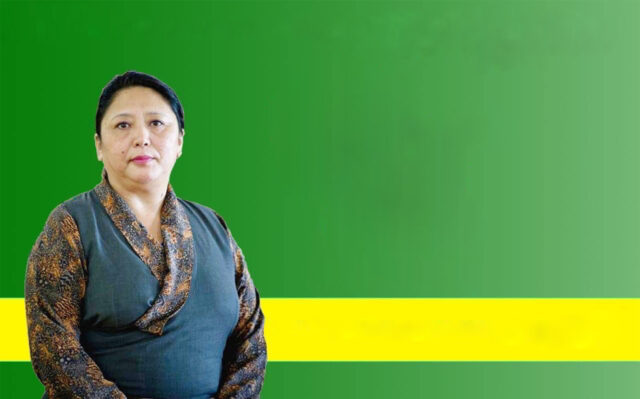NEW DELHI: The first woman to stand for election as Sikyong (Prime Minister) of Tibet’s government exile in Dharamsala, has called on India to acknowledge her homeland’s occupied status.
India “must abandon its very cautious position with regard to Tibet,” Gyari Dolma said during a recent webinar organised by the Foundation for Non-violent Alternatives, adding that, “India must recognise Tibet as an occupied nation and recognise that it shares a border not with China but with Tibet. India has a legal, international obligation to stand for truth and recognise its relations with Tibet.”
Strong words from a person acknowledged as a political heavyweight among Tibetan exiles. Dolma’s been a member of the Tibetan Parliament for two decades (1991-2011), as well as home minister in the Central Tibetan Administration (CTA).
The question is were her remarks an electoral pitch directed at young Tibetans disillusioned with the Middle Way approach, that only seeks autonomy within the Chinese framework? Or was she voicing the sentiments of those more powerful in the Tibetan hierarchy in India?
Curiously, Dolma while seeking self-determination also said she supported the Middle Way. At the webinar she also said, “The time is right for India to assert itself based on truth. The first step would be to recognise Tibet as an occupied land,” and sought self-determination for her people. It’s something neither the Dalai Lama nor the current Sikyong Lobsang Sangay have ever called for. They have all along sought autonomy within China.
She cited the 1965 UN General Assembly resolution calling for the restoration of the fundamental rights and freedoms of the Tibetans, which India had backed. She also gently criticised India’s Tibet policy. “Whether relations are good or bad is always determined by China and not India. The Government of India’s position is always influenced by its relations with Beijing,” adding that “no country has been as kind to Tibetans as India. It’s our guru.”
Dolma has made similar comments before, but that was when she held no post in the exiled government. Her latest remarks could be a trial balloon to see how India reacts, given the complete collapse of any trust in Beijing, If so, it is speculated that the time from now to her formal election as Sikyong next April, could see new ground laid in India’s Tibet policy.
















